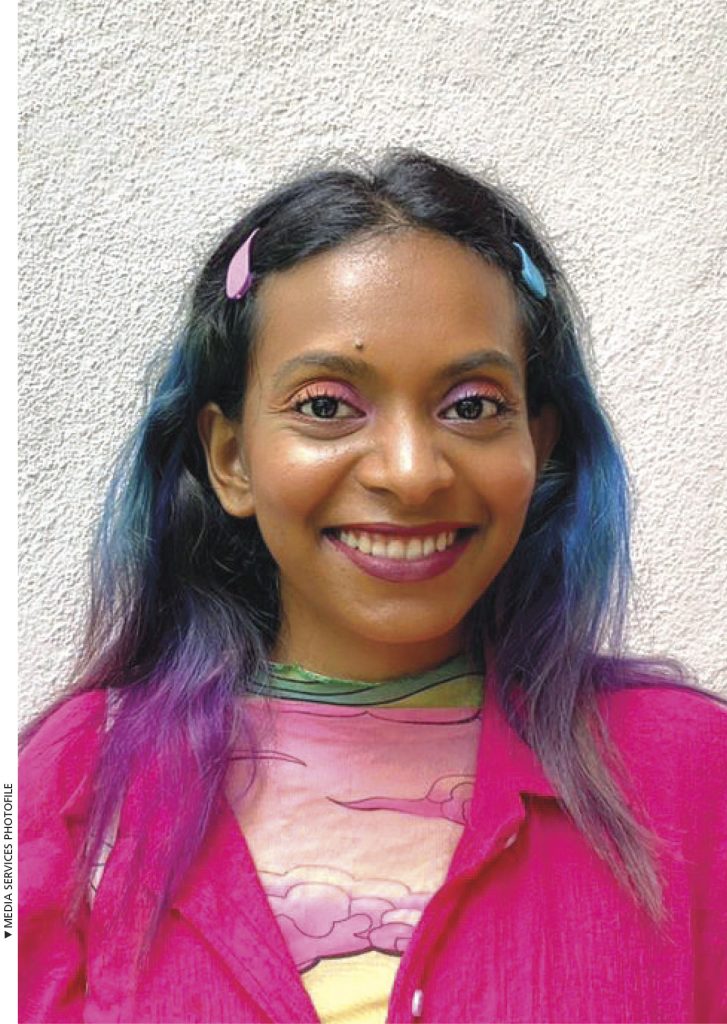Enakshi Samarawickrama
Creating equitable spaces

Q: What inspired you to specialise in the study of domestic noir, a newer subgenre of crime fiction?
A: I’ve always been a huge fan of crime fiction because my parents introduced me to the genre.
As a six-year-old, I started with Enid Blyton’s The Secret Seven series (as everyone does) because my mum thought it was splendid to read and I loved the whole mystery solving aspect of it. When I was about 12, my dad introduced me to the Perry Mason series and that cemented my love of murder mysteries.
But as I grew older, and the more I learnt about how women are portrayed in fiction and media – and as I hoped to see female protagonists in the media I consumed – I began looking for murder mysteries with women.
At the same time, I was angered by how men treated me, my friends and other women simply because of our gender. This made it important for me to see more nuanced portrayals of women.
That’s when I started moving away from reading murder mysteries that featured lots of dead women who were murdered in gory ways by men and turned to stories where women weren’t always victims – sometimes they were the perpetrators.
Gillian Flynn’s Gone Girl was a delightfully weird little entry to this world. And I’ve been in love with this domestic noir ever since. So it made sense to study this because I love it and so many women feel validated reading domestic noir novels.
There has to be a reason, right? That’s how I began researching domestic noir.
Q: Are there any new areas of research you’re excited to explore in the future?
A: As someone with hidden disabilities like mental illness, ADHD and autism spectrum disorder (ASD), I’ve recently focussed on looking at how disabled people are portrayed in literature, film and social media.
My hope is to explore this field more thoroughly because it’s important for us as a society to recognise and question the ableist language and behaviour we use, so that we can make society a more equitable and accepting space.
Q: How do you stay connected with your Sri Lankan roots while living in Malaysia?
A: Sinhala is my lifeline. I think in Sinhala and use it whenever I can, because it helps me keep that part of my identity intact and alive.
Music and books are other ways I stay connected. Whenever I miss home, I watch a baila video on YouTube and feel like I’m home.
I also have a stack of books by Sri Lankan authors that helps me stay connected. And I even included one – Punyakante Wijenaike’s Giraya – in the reading list for my students and they loved it.
It gave me an opportunity to introduce non-Sri Lankan students to my country and for them to learn about a less talked about South Asian country.

FACT FILE
FAMILY
Parents
Younger sister – Kaviru (a working professional and poet)
SCHOOLING
Bishop’s College
HIGHER EDUCATION
BA (Hons) – Open University of Sri Lanka
MA and PhD – University of Nottingham Malaysia
PRESENT OCCUPATION
Assistant Professor in Literature – University of Nottingham Malaysia
COUNTRY OF RESIDENCE
Malaysia
CITY OF RESIDENCE
Semenyih (Selangor)
CV IN A NUTSHELL
Enakshi Samarawickrama is an Assistant Professor of Literature in the School of English at the University of Nottingham Malaysia. Her interests lie in researching portrayals of gender in crime fiction, the power dynamics at play between ‘femininities’ and ‘masculinities,’ and the concepts of female victimhood, violence and agency.
Apart from this, she also works on how gender intersects with other identities such as race, religion, queerness and disability in fiction, film and on social media.
In her spare time, Samarawickrama likes to read and spend time with her fur babies – two cats and a dog.
